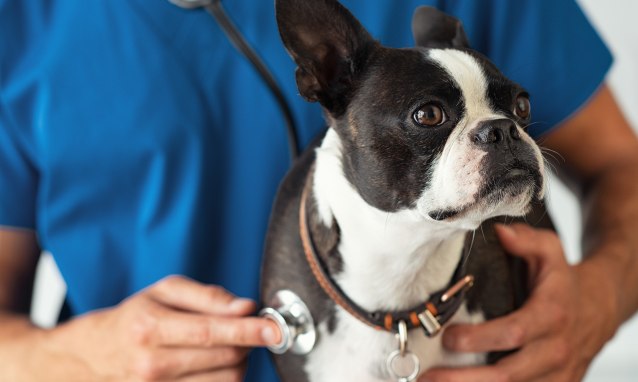Respiratory tract infections are quite common in dogs, it is usually classified into two phases, which are upper respiratory infections and more severe, lower respiratory infections or pneumonia. This article will provide information about upper respiratory disease and recommend some quality products to treat respiratory tract infections in dogs.
Upper respiratory infections in dogs can affect the bronchi, trachea, throat, and nasal cavities and are common, especially in dogs with compromised immune systems. Most dogs will have at least one upper respiratory infection in their lifetime.

Causes:
There are several bacterial and viral causes of upper respiratory infections in dogs, and puppies, senior dogs, and dogs with compromised immune systems are more at risk.
Bordetella bronchiseptica is the most common bacteria that cause upper respiratory infections in dogs. It can spread between dogs through coughing, clothing, or shared water bowls. It can lead to further secondary infections of E.coli, staph, and strep if untreated, and puppies may develop bronchopneumonia.
Upper respiratory infections in dogs can also be caused by viruses such as Distemper, adenovirus, and influenza, among others. Parainfluenza is the most common viral cause of upper respiratory infections in dogs. Any of these viruses can cause severe damage to the respiratory system and lead to upper airway disease.
In addition, sometimes parasites can cause upper respiratory infections in dogs. For example, pneumonyssoides caninum, more commonly known as the canine nasal mite, can cause a number of symptoms and leave dogs open to secondary infection. However, canine nasal mite infection is rare in North America.
These infections are often caused by bacteria and viruses that are quite contagious, which is why outbreaks are often seen in shelters, kennels, or places where a lot of dogs are together in a close space. Upper respiratory infections are usually difficult to treat in dogs, and relapses happen often. Therefore, it is important to get to the veterinarian right away to begin treatment quickly and avoid complications.
Here’s what you should know about the symptoms, causes, and treatments for upper respiratory infections in dogs.

Symptoms Of Upper Respiratory Infection In Dogs
- Nasal discharge
- Eye discharge
- Fever
- Itchy nose
- Sneezing
- Coughing, snorting, and wheezing
- Gagging or retching
- Dry nose
- Drooling or foaming at the mouth
- Ulcers of the mouth or nose
- Loss of appetite
- Weight loss
- Dehydration
- Lethargy
- Exercise intolerance
Prevention: Using Nobivac DHPPi + L vaccine: prevention of Carrot disease, infectious hepatitis, Parvovirus, Vice flu, Lepto. Vaccinate puppies at 7 weeks old, repeat after 1 month, re-vaccinate with good nutrition every year, keep warm in the cold season. Periodically check dog heartworms.
Treatment:
- Antibiotics can be used in case of bacterial diseases such as Tylovet, Tylogen, Spectylo, Lincocin 10%, Erytialin, Amoxi 15% LA, Vime spiro FSP, Genta-Tylo.
- Combined anti-inflammatory: Ketovet; inflammation: Chymosin fort
- Symptomatic drugs: Vime Liptyl, Bromhexine, Urotropin, Furovet.
- Fostering drugs such as: B.Complex fortified, Vime - Canlamin, Vitamin C, Vitaral, Na.campho.
REFERENCE
https://dogtime.com/dog-health/56283-upper-respiratory-infection-dogs-symptoms-causes-treatments


